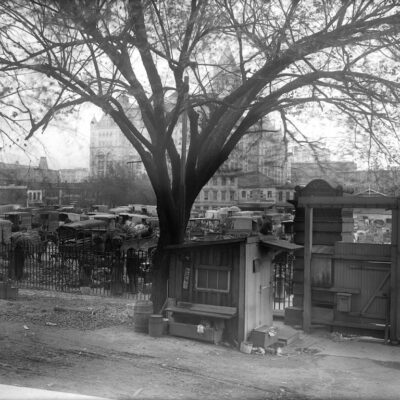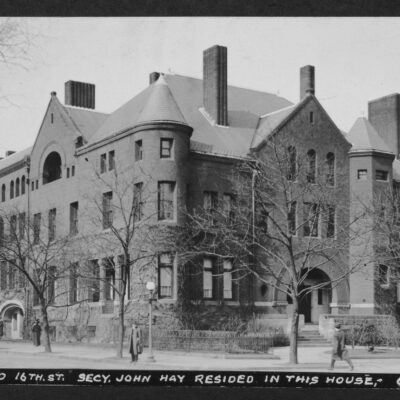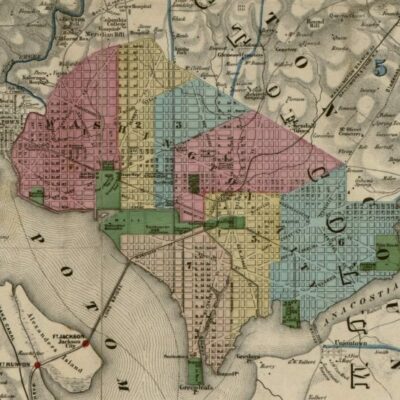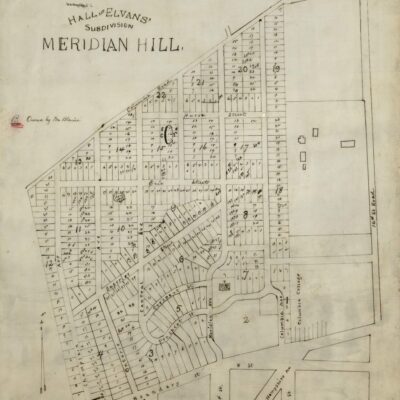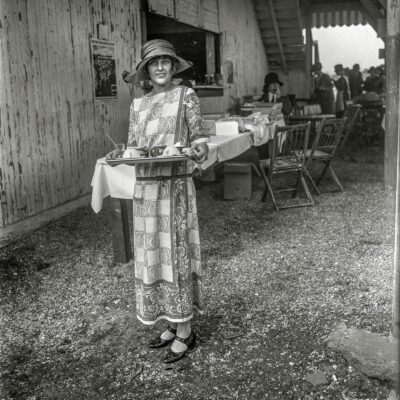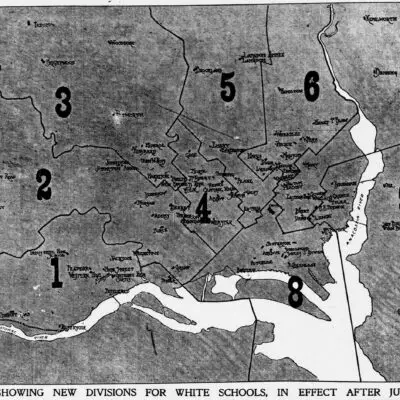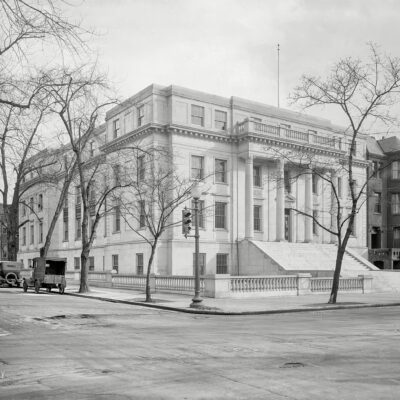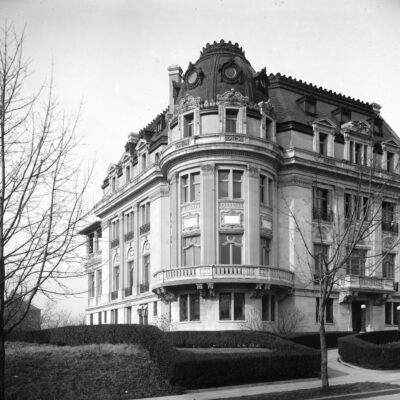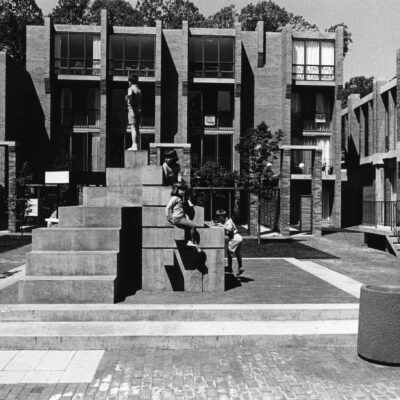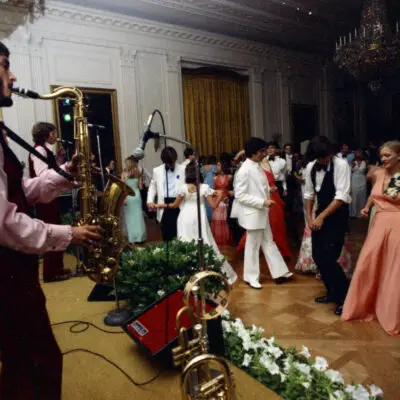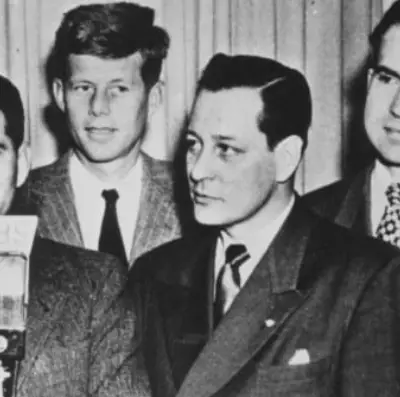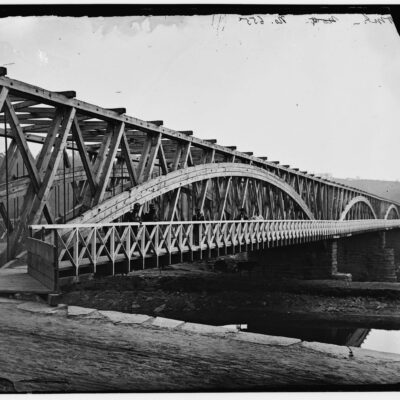Pauline Floyd was a pioneer and an excellent role model for women pursing a career in law. Not only did she enter the legal field at a time when female attorneys were rare, she was one of the youngest to practice in the country.
Even more impressive was the fact that she was the youngest female lawyer admitted to practice before the Supreme Court (some sources say youngest person ever, some say youngest woman, but I believe it’s the latter).
Now that is an incredible achievement worthy of highlighting for Women’s History Month and also a good entry for the old category of “A Personal Story.”
The earliest documentation I can find of young Pauline was a U.S. Census record from 1900. She was 3 years old, living at 831 11th St. NW with her mother Pauline, 34, and brother John, 13. Her mother was listed as a widow originally from Arkansas.
Her mother was active in the women’s suffrage movement during the early part of the 20th century, often working with Alice Paul and Dora Lewis. Undoubtedly, being surrounded by such strong women had a large impact on the younger Pauline’s confidence and outlook on life, and she seized her opportunities to succeed.
In 1920, Pauline was 22 years old and living with her mother, a widow, at 913 M St. NW. Her occupation was listed as attorney and her mother was a clerk at the Department of Agriculture. She finished up her law degree at the Washington College of Law (now part of American University) and was admitted to the bar in March 1919. (Quick side note: Washington College of Law was founded in 1896 by Ellen Spencer Mussey and Emma Gillett because legal education for women was not available in the area. It officially became part of American in 1949).
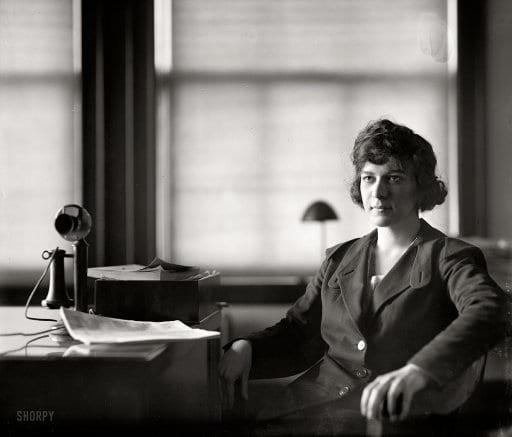
It was such an impressive feat for a young woman at the time that it was on the front page of the Washington Times.
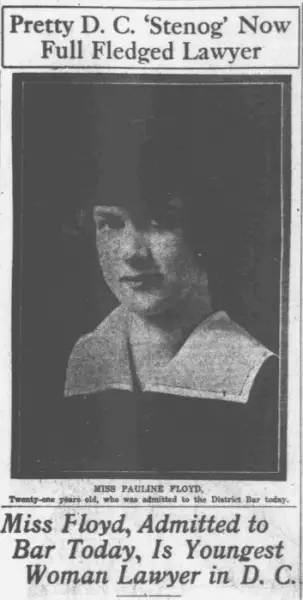
Below is the text of the Times article.
Twenty-one years old, pretty, and a lawyer!
This is a very brief description of Miss Pauline Floyd, the youngest woman to be admitted to the bar in the city. Miss Floyd was admitted to the District Supreme Court this morning. She is working as a stenographer until she can complete plans for beginning to practice.
Miss Floyd is a Washington girl. She was born in this city on January 7, 1898, and has lived here all her life. She attended the public schools and after graduating from the graded schools, went to Business High School.
She left a brilliant record behind her there, and won a scholarship from the high school, graduating with the lass of June, 1915.
She then went to the Washington College of Law. In her freshman year she went out strongly for debating and won her first public debate. Her third year at the law school was marked by her attainment of the class speakership at the annual banquet. The following year she was elected president of the graduating class.
The examinations for the District bar were taken by Miss Floyd on January 23, 24 and 25.
If that is not an impressive track record, I don’t know what is.
Ms. Floyd was in her early 20s and the local papers claimed that she was the youngest women attorney in America. She ended up practicing divorce law to help the women in Washington extricate themselves from failed or lousy marriages. Unfortunately for her, the divorce laws in the District were so antiquated and difficult that the market was almost non-existent; laws were so heavily skewed in favor of the men, that it was almost impossible for a woman to successfully obtain a divorce.
Pauline felt this legal disparity was so egregious that she went on record with the Washington Times, ridiculing this gross imbalance.
“The divorce laws of the District of Columbia are as antiquated as those of England. The only difference is that in England some effort is being made for a reform in the laws, while in Washington they shall–like the brook–go on and on like this forever.”
Miss Floyd says the divorce laws of the District work an undue hardship on the woman, and are good only for one thing, and that is to give employment to a lot of private detectives.
“And even at that,” she says, “it’s the hardest thing in the world for a detective to get sufficient grounds on which a woman in the District of Columbia may get a divorce. The only ground for absolute divorce is adultery.”
“Men are clever. They usually can tell when they are being spotted. And they either cease their activities or they put on the soft pedal, and friend wife is left just where she was before, except that she has a detective bill on her hands.”
“Of course, I know it’s an old, old idea, but if men and women knew that either the husband of wife could get a divorce for the asking, each would exert himself more to hold the love of husband, or wife, as the case may be.”
Pauline was ahead of her time and very much reminds me of Lady Sybil from Downton Abbey. That is, she’s a woman not content with the way things were or the status quo. Just because we do things one way, doesn’t mean it’s right. Keep pushing the limits and change for the better.
She sounded like a pretty impressive person.
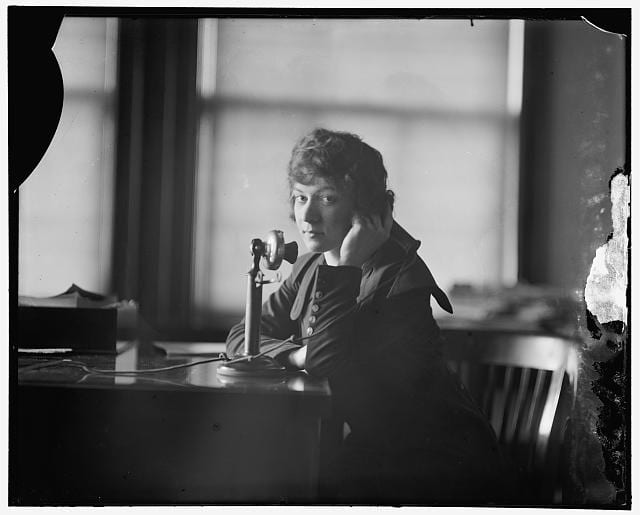
By the way, Cultural Tourism D.C. has a fair bit of interesting stuff coming out to celebrate Women’s History Month, so make sure you check out their blog and follow them on Twitter and Facebook.
… and don’t forget, we are also on Twitter, Facebook, foursquare, YouTube, Flickr and of course Pinterest!

